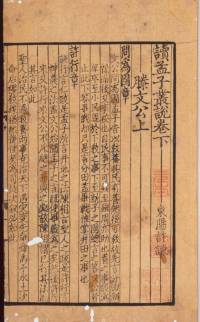<html>
<div style="font-family: Chalkduster; font-size: 13pt; color: #fff;">
<ul>
<li> <a href="http://www.camcc.org/">Home</a> + <a href="http://www.camcc.org/events">Events</a>
</li><li> <a href="http://www.camcc.org/about/Chinese-classics">Chinese Classics</a>
</li><li> Reading Groups
<ul>
<li> <a href="http://www.camcc.org/reading-group"> Chinese </a>
</li><li> <a href="http://www.camcc.org/reading-group/en/">English<sup>beta</sup></a>
</li></ul>
</li><li> <a href="http://www.camcc.org/discussion-group/">Discussion Grp.</a>
</li><li> <a href="http://www.camcc.org/tea-party">Tea Ceremony</a>
</li><li> <a href="http://www.camcc.org/tea-yoga">Tea Yoga</a>
<!--
</li><li> <a href="http://www.camcc.org/other-activities">More Activities</a>
-->
</li><li> <a href="http://www.camcc.org/blog/">Blog</a> + <a href="http://www.camcc.org/links">Links</a>
</li><li> <a href="http://www.camcc.org/about/">About Us</a>
<!--</li><li> <a href="http://www.camcc.org/contact">Contact Us</a> -->
</li><li> <a href="http://www.camcc.org/internal/home">Internal</a>
</li></ul>
</div>
</html>
----
[[president@camcc.org|Email us]]. Or follow us
on [[http://www.facebook.com/groups/182337131809002/|{{facebook.png?32}}]] [[http://page.renren.com/601199149|{{renren_logo.jpg?32}}]] [[http://blog.sina.com.cn/u/1965219823|{{wordpress.png?32}}]]
<html>
<div style="margin-top:-19px">
<div style="width: 22%; float: left; text-align:center">
<a href="http://www.camcc.org">
<img src="http://www.camcc.org/_media/logo-经典方篆-roften.png" width="145" height="145" alt="Camcc" />
</a>
</div>
<div style="width:78%; height:145px; float:right; margin-top: 0px; border-bottom:solid 5px #000000;">
<div style="width: 3%; float: left; margin-top:40px;"></div>
<div style="width: 67%; float: left; font-size: 115%; margin-top:15px;">
<h1>
Cambridge Chinese Classics</br>
剑桥中国传统文化研习社
</h1>
To study, practice and promote Chinese classics
</div>
<div style="width: 30%; font-size: 80%; margin-top: -10px; float: left;">
<div style="height: 130px;width: 100%;float:left">
</html>
**Coming events:**
{{iCalendar>https://www.google.com/calendar/ical/cam.chineseclassics%40gmail.com/public/basic.ics#from=today&previewDays=30&showEndDates=1&&numberOfEntries=1&showAs=list}}
<html>
</div>
<div style="height: 20px;width: 100%;float:left">
Join our <a href="https://lists.cam.ac.uk/mailman/listinfo/soc-camcc">mailing list</a>
</div>
</div>
</div>
</div>
<style>
#dokuwiki__aside {
//border-right: dashed 1px black;
border-right: none;
}
.dokuwiki .wrapper {
border-bottom: solid 1px black;
}
blockquote {
border-left: none !important;\\2px solid #8cacbb;
padding-left: 0.6em !important;
}
div.dokuwiki div.comment_wrapper { background-color: transparent !important;}
</style>
</html>
Sidebar
Table of Contents
Chinese Reading Group
We organise weekly reading sessions on Chinese Classics. A reading session normally lasts for 1.5 hours, with the first 30 minutes dedicated on some 'ad hoc' texts and the rest 1 hour on one in our reading series. The 'ad hoc' texts are selected by the host, and span over a broad class of topics, such as Zhuangzi, poems, the art of war, etc. and changes over sessions. Texts in the reading series are normally well acknowledged ones and fixed over a period of time till finished. For this part, we have finished Daxue, Dao De Jing, etc. and the current text is Lunyu or the Analects of Confucius. Below are some texts we have read or are currently reading.
Current Reading
- Mengzi
- Ad Hoc Reading
- Gallery
- Schedule (2015)
- About
Mengzi
Mengzi or Mencius is our current text for the reading series. Normally this text is some well acknowledged Chinese classical text, selected by discussion of the participants. We always welcome suggestions on both the content and format of this reading series.
Texts for the reading sessions
- (孟子)
Introduction to Mengzi
 The Mencius (Chinese: 孟子; pinyin: Mèngzǐ), commonly called the Mengzi, is a collection of anecdotes and conversations of the Confucian thinker and philosopher Mencius. The work dates from the second half of the 4th century BC. It was ranked as a Confucian classic and its status was elevated in Song Dynasty. Zhu Xi, the scholar generally credited with the founding of Neo-Confucianism, included the Mengzi as one of the Four Books, and it became one of the canonical texts of Neo-Confucianism.
The Mencius (Chinese: 孟子; pinyin: Mèngzǐ), commonly called the Mengzi, is a collection of anecdotes and conversations of the Confucian thinker and philosopher Mencius. The work dates from the second half of the 4th century BC. It was ranked as a Confucian classic and its status was elevated in Song Dynasty. Zhu Xi, the scholar generally credited with the founding of Neo-Confucianism, included the Mengzi as one of the Four Books, and it became one of the canonical texts of Neo-Confucianism.
Previous Reading
| 论语/Confucian Analects | 16 November, 2013 - 29 November, 2014 |
| 诗经/The Classic of Poetry | 01 December, 2012 - 9 November, 2013 |
| 千字文/Qianziwen | 28 April, 2012 – 24 November, 2012 |
| 道德经/Laozi | 22 May, 2011 – 07 April, 2012 |
| 中庸/The Doctrin of The Mean | 20 February, 2011 – 10 April, 2011 |
| 大学/The Great Learning | 23 January, 2011 – 6 February, 2011 |
Special Reading
The special reading sessions are not the official activities by the society, purely motivated by the interests of our members. They are normally organised out of term time, and just for those who are interested.
Page Tools
User Tools
<html>
© Cambridge Chinese Classics, 2012 - 2017
<script type="text/javascript">
var _gaq = _gaq || [];
_gaq.push(['_setAccount', 'UA-27605058-1']);
_gaq.push(['_trackPageview']);
(function() {
var ga = document.createElement('script'); ga.type = 'text/javascript'; ga.async = true;
ga.src = ('https:' == document.location.protocol ? 'https://ssl' : 'http://www') + '.google-analytics.com/ga.js';
var s = document.getElementsByTagName('script')[0]; s.parentNode.insertBefore(ga, s);
})();
</script>
</html>